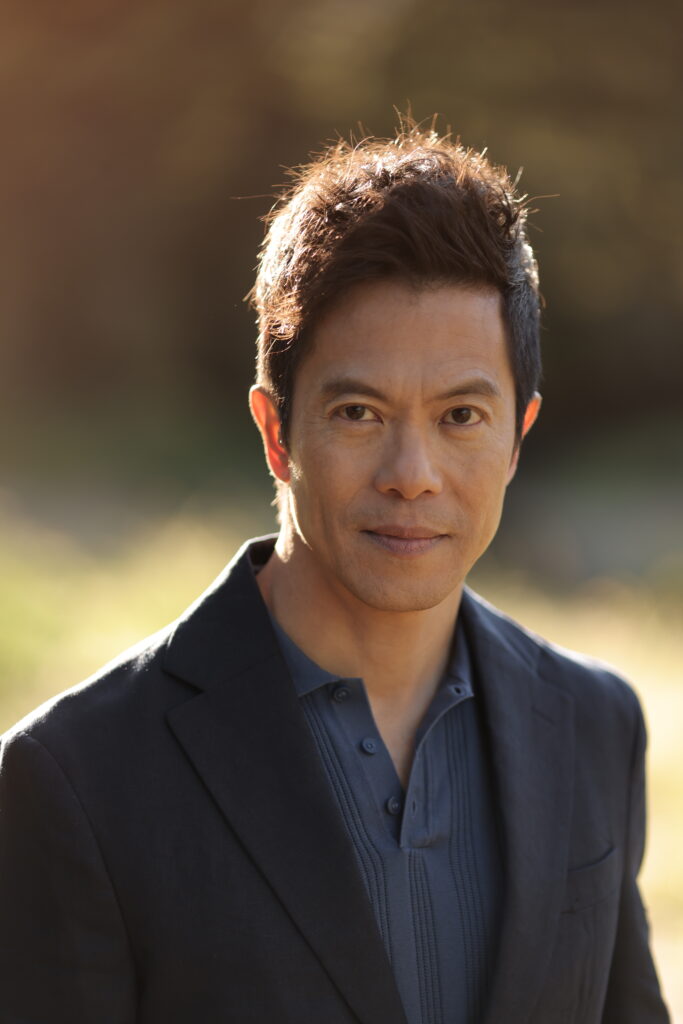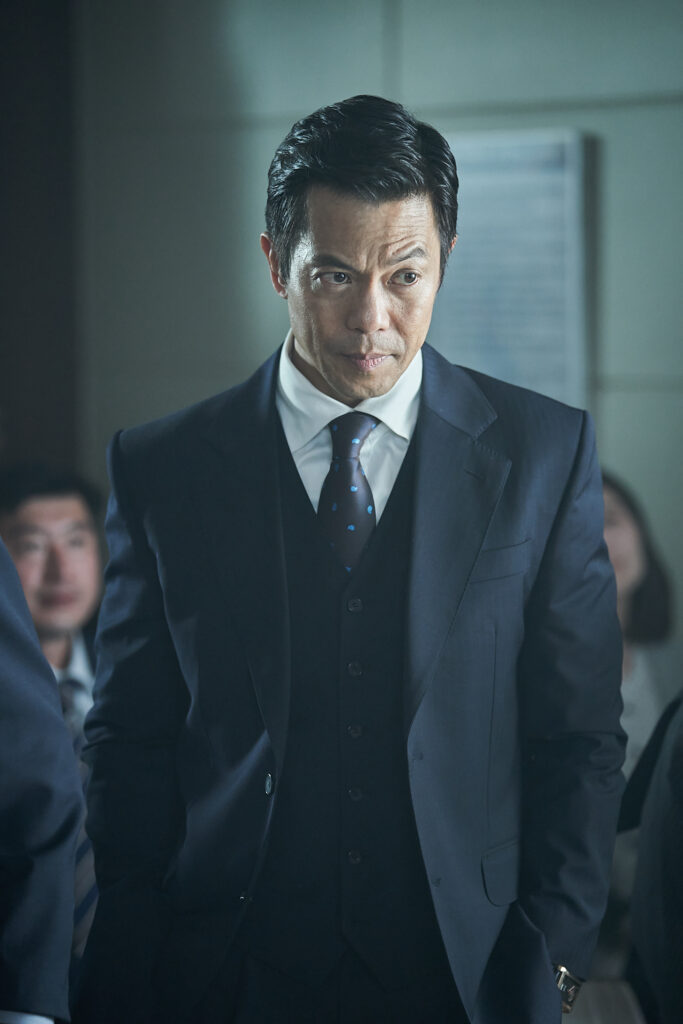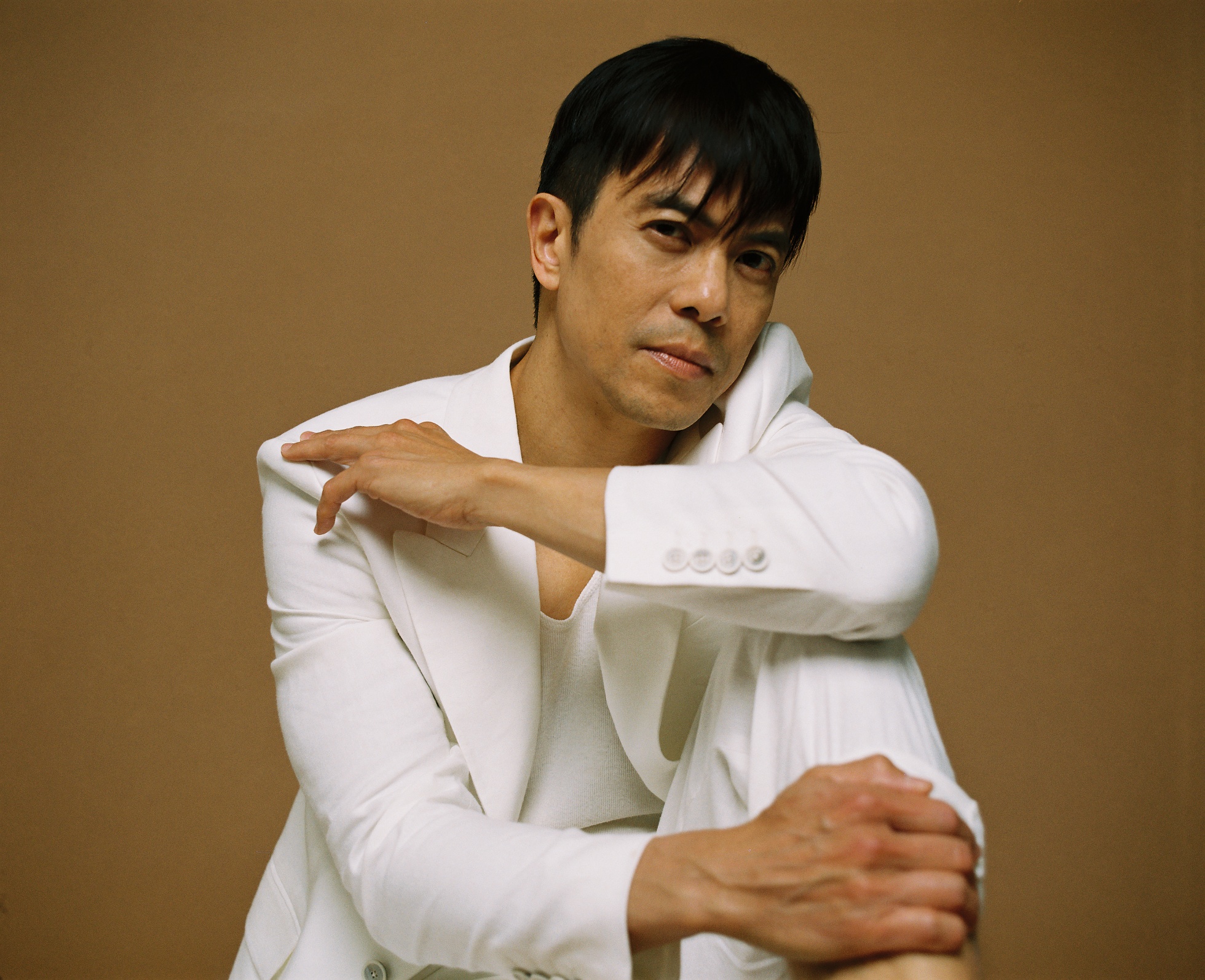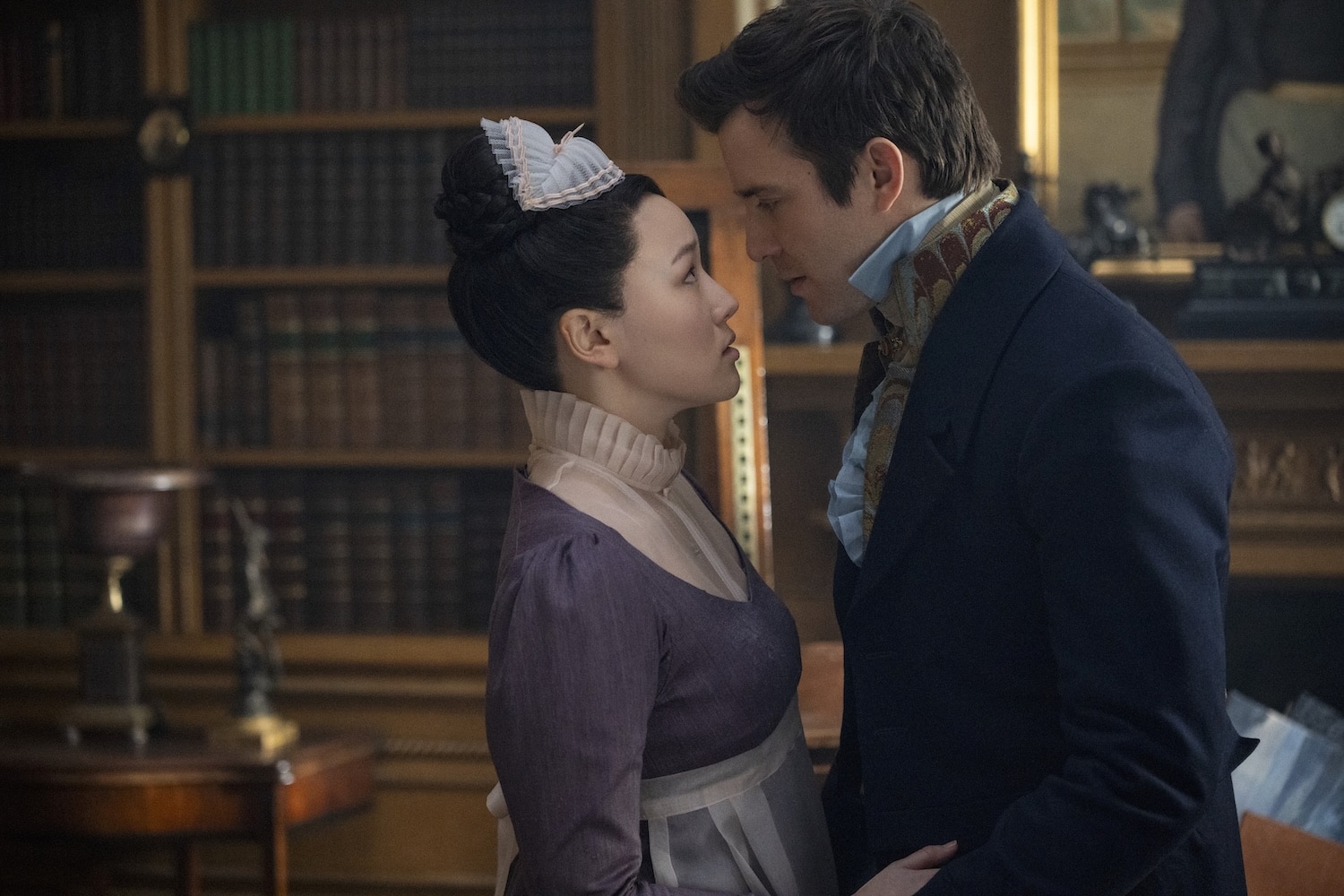Byron Mann has spent nearly three decades in front of the camera. From early roles in Hollywood action films to more recent turns as a producer, writer, and star, Mann has cultivated a career that reflects a changing film landscape and his personal drive to tell stories. He spoke recently about his journey, his dedication to precision, and why making his own films has become so important.

From Law School Dreams to Silver Screen Realities
Mann’s path to acting was not typical. He grew up in Hong Kong, and his early interest in performance found expression in school plays. “I always did school plays, and I even wrote a school play that won an award when I was about 15 years old,” he recalls. “I enjoyed the writing part and the performance part, and I did that for fun in Hong Kong, where I grew up.”
Yet, a career in the arts was not his initial plan. At university, he intended to study law. A summer internship at a corporate law firm changed everything. “After my first year of interning at a corporate law firm, I realised that wasn’t what I wanted to do for the rest of my life,” Mann says.
A partner at the firm, an American, saw something in him and offered a surprising suggestion: “If you’re going to school in Los Angeles, why don’t you try it there? That’s where Hollywood’s at.” This pivotal conversation led Mann to hatch a plan. “During my second and third years of law school, I would try to give acting a stab. And that’s what I did. That’s how I started, yeah.”
He found his footing in Los Angeles, not Hong Kong, despite his upbringing. The Hollywood of the late 1990s presented a different set of challenges for Asian actors than it does today. “There were certain prescribed roles for Asians, like villains or martial arts characters,” Mann observes. These were roles he played often. “That’s how I learned acting and paid my dues; I did a lot of those roles,” he explains. He found a strange enjoyment in them, too. “For me, it was kind of fun. I didn’t mind it; I enjoyed it. It was either that or a 9-to-5 office job.”
The Shift to Creation: Making *The Modelizer*
After years as an actor-for-hire, Mann found a new sense of purpose in creating his own projects. This began with *The Modelizer*, a film that became a significant turning point for him. The idea for the film originated from a casual conversation with a cinematographer friend who wanted to film in Hong Kong. “He said, ‘I love Hong Kong; I want to shoot a film there with you.’ I said, ‘Great. Do you have a script?’ He said, ‘No.’ ‘Do you have a story?’ He said, ‘No.’ ‘What do you have?’ He said, ‘I don’t have anything. I want to shoot a movie there with you.’ I said, ‘Okay.'”
Mann took up the challenge of finding a story. He did not want to pursue another martial arts film. Instead, he drew from observing the international modelling scene in Hong Kong. “I got to know some of these models and some of the PR people who work with them. Then I met some people who date models, and I heard all their stories. Some of them were outrageous, crazy, funny, romantic, and sad all bunched into one. So I instinctively thought, ‘Man, there’s a story here. There’s a movie in this world.'” He started writing.
The film came together during the early days of the pandemic. Mann found himself stuck in Hong Kong for over a year and was able to gather the resources and team needed. Filming took place in late 2020 and early 2021. “For me, it was a watershed moment because it was a story that I loved. It was the first time I was able to, instead of being an actor for hire, literally produce, to make a film, make a story, and bring it to life—a story that I knew and loved,” he states. “It changed the course of my career—how I see my career. It’s more fulfilling. I realised after a while that, as an actor, you have so many years in your life. To be able to leave a mark, a legacy, basically saying, ‘This is my work. These are my films.’ With other shows, I’m a ‘work for hire,’ which is great, that’s fine. But these movies I created; this is what I believe in. These are the stories that I believe in. These are the values, these are the morals, these are the lessons that I believe. And to be able to communicate that in a movie, and you have it forever—it’s fantastic.”
The Value of Precision: Getting the Details Right
Mann stresses the need for precision in filmmaking, particularly when portraying specific cultures or groups. He recalls instances where Asian characters in Hollywood productions felt off the mark. “I can’t tell you how many characters I’ve played in the triad world in the US on TV shows,” he says. He recounts trying to correct a producer about a tattoo detail.
“I’m telling you, I’m from Hong Kong, and I actually had a conversation with the producer. I said, ‘That does not exist.’ They may have tattoos, but that’s not the tattoo that indicates they are part of the triad, because in Hong Kong, it’s actually illegal to have tattoos that signify you’re part of the triad. But it wasn’t their concern, or they were less concerned about that detail.”
His frustrations led him to writing. He offers *The Corruptor* as a film that succeeded in portraying its characters with care. “The director, James Foley, painstakingly got all the details right. He did a lot of research,” Mann explains. The effort paid off: “Through the years, I can’t tell you how many Asian guys, Asian audiences, have come up to me and said, ‘Thank you for portraying this character right. You got it right. I know this guy.'” This taught him a key lesson: “They don’t care whether it’s a good guy or a bad guy; they care that the character is portrayed correctly.”
Read more: Ben Wang Talks Everything ‘Karate Kid’ and Living up to an Iconic Legacy
This commitment to getting details right extends to dialogue. For the recent Korean film Big Deal (also known as Soju War), Mann took on the task of refining the English lines. “The English dialogue was very clunky,” he recalls of the translated script. He spent a month on Zoom calls with the director and producer, ensuring the dialogue sounded natural.
“I had to first understand what they were trying to say in the scene, in this line, and then I had to help phrase it not only so a native speaker would say that line but also in a natural way.” He applies this same rigour to non-English dialogue in American films. “You need to get the Cantonese right, or the Mandarin right. Otherwise, Chinese audiences, when they watch this movie, they’re going, ‘What is this guy talking about? He doesn’t even speak Chinese!'”
Unexpected Impact: The Wu Assassins Diner Scene
Sometimes, an actor cannot predict which moments will connect with an audience. Mann points to a scene in Wu Assassins where his character delivers a monologue about Chinese history in America. “I was actually genuinely worried that it would be the most boring scene in the whole series,” he admits. “I was like, ‘Man, I don’t care how I deliver this monologue, but I’m not sure the audience will really care about this anymore.'”
Yet, the scene found an audience far wider than he anticipated. “People gravitated toward that scene, not just Asian people, not just Chinese people, but all types of people who have experienced that kind of what you call microaggression in a public space. It could be Latinos, it could be Black people, it could be South Asians, whatever. They all came out and talked about that scene,” Mann explains.
“It was surprising to me… I never expected that scene to have such public reach. So I was genuinely surprised, even to this day.” The lesson, he says, is simple: “Your job as an actor or as a director is to be as truthful as you can when you execute that scene, because at the end of the day, I think people want to hear the truth.”
The Quest for a Good Story
When evaluating a new project, Mann prioritises the script above all else. “I want to read a great story first and foremost,” he says. “Is it a good story? Is it well-told? Is it a unique story, or have I seen the story many times before, and is it well-told? Is it a good script? Is it well-written? Those two things are very important.” He believes a good script sets the tone for the entire production. “A good script usually attracts good directors and good actors. They go hand-in-hand.”

Mann’s career reflects a commitment to evolution. While he acknowledges the different skills required for acting versus producing, he finds enjoyment in both. “Acting requires you to be very alive every moment right in front of the camera, and you have to inhabit a certain character, so you’re becoming someone else,” he describes.
Producing, on the other hand, means “you’re constantly thinking about the whole project. So it’s more intellectual, I think, and more visionary. You have to think of the whole picture, and how everything fits into the story.” For now, the jury is out on which he prefers more. “I think acting is still super fun for me because it’s kind of electric and enjoyable to play around with other actors. But I’m beginning to enjoy putting a movie together, putting a story together.”
Read more: Yeo Yann Yann Talks “Throwing Dark Energy” Into Villain Role in Tom Hardy Action Thriller ‘Havoc’
As his career continues to unfold, Byron Mann remains driven by a clear purpose: to mirror the multifaceted world around him. “I’m not an ambassador for anything, any cause. I’m trying to reflect reality,” he states. “We live in a very complex world with very interesting characters. It doesn’t matter whether you’re White or Asian or Black or Latino. Everyone’s interesting, so everyone should be represented correctly.” And with each new project, he makes sure that happens.
Feature image credit: Well Go USA/SHOWBOX CORP









